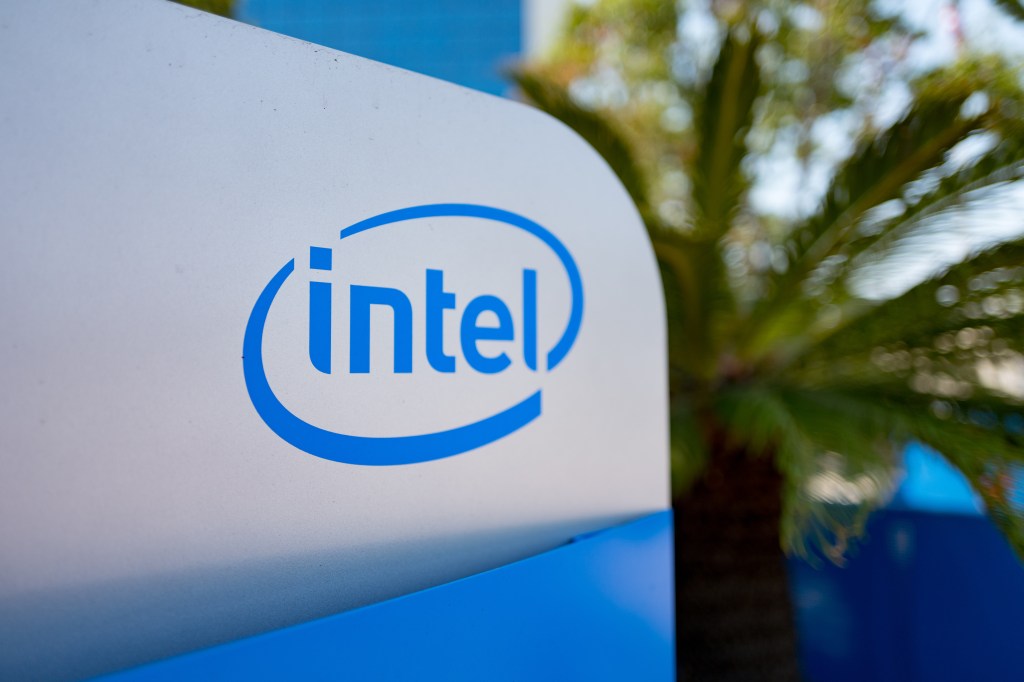Talk about old news: The European Union has reimposed a fine (totalling €376.36 million) on Intel for antitrust violations dating back decades.
Veteran tech watchers may recall the chipmaker was slapped with a much bigger fine, of over a billion euros, by the EU back in 2009 which found Intel had abused its dominance in the market for chips to exclude rival AMD by paying PC manufacturers and retailers to delay, cancel or simply not sell products containing AMD’s chips.
The massive sanction kicked off years of legal appeals. Some of which remain ongoing (yes, in the Year of Our Lord 2023). But one component of which is no longer being appealed by Intel, hence the EU reimposing a (substantially less massive) fine for that specific element.
Today’s development follows a ruling last year by the EU’s General Court — after a 2017 decision by the bloc’s top court referring the case back to the lower court for review — which annulled part of the Commission’s original decision concerning so-called “conditional rebates” (aka, its claim Intel had given whole or partial rebates to PC makers on condition they bought all/almost all their x86 CPUs from Intel); but confirmed the unlawfulness of Intel’s “naked restrictions” (aka, paying PC makers to halt or delay the launch of specific products containing rival x86 CPUs and limit the sales channels available to these products).
At the same time the General Court annulled the entirety of the fine the Commission had imposed in 2009 since it could not establish the amount of the penalty relating only to naked restrictions. And so we arrive at today’s €376.36M (~$400M) sting — which, per the Commission, reflects the “naked restrictions” EU judges have confirmed that Intel unlawfully applied.
What exactly were the restrictions Intel is being (re)fined for now? Here’s the Commission’s breakdown:
- Between November 2002 and May 2005, Intel made payments to HP conditional upon HP selling business desktops based on the x86 CPUs of its competitor AMD (i) only to small- and medium-sized enterprises; (ii) only via direct distribution channels (rather than distributors); and (iii) on HP postponing the launch of its first AMD-based business desktop in Europe by 6 months
- Intel made payments to Acer conditional upon Acer postponing the launch of an AMD-based notebook from September 2003 to January 2004
- Intel made payments to Lenovo conditional upon Lenovo postponing the launch of AMD-based notebooks from June 2006 to the end of 2006
“As a result of those restrictions, computer manufacturers halted, delayed or placed restrictions on the commercialisation of products based on a competitor’s chipsets, which they had actively planned and for which there was consumer demand. Intel’s naked restrictions therefore had a detrimental effect on competition in the market, by depriving customers of a choice which they would have otherwise had,” the Commission adds.
The amount of fine being reimposed on Intel is based on the same parameters as its 2009 decision, per the Commission — with the downsizing reflecting the “narrower scope of the infringement” compared to that decision.
The EU is still appealing the General Court’s other finding last year that the Commission’s assessment of Intel’s conditional rebates was incomplete and the decision did not sufficiently demonstrate the rebates had the capability of restricting competition. So it hasn’t given up on the possibility of clawing back more of the earlier fine amount. But that appeal remains pending.
The Commission’s Q&A on the latest case development includes a question wondering why it’s imposing a fine for an infringement that “might have had a limited impact in the European Economic Area (EEA) and 15 years after the infringement came to an end”?
“The Court of Justice has confirmed that the infringement amounted to a serious breach of EU competition rules, with a significant impact in the EEA (C-413/14 P). The Commission is committed to enforcing EU competition rules and ensuring that such anticompetitive practices do not remain unsanctioned,” it responds on that.
Interest payments fight
The memo also states that the Commission reimbursed Intel the entire fine “provisionally paid” and “applicable interest” last year. But this aspect of the saga is also the target of legal action.
This stems from a 2021 decision by the bloc’s top court which ruled the Commission must pay default interest on reimbursed fines in annulled antitrust cases which should be the rate set by the European Central Bank for its principal refinancing operations, plus 3.5 percentage points.
Last summer Intel duly filed a claim for €593 million in interest from the EU, which it claimed had refused to reimburse default interest on the annulled sanction. Although those proceedings have been stayed in the General Court pending a final decision from the EU’s Court of Justice on Commission appeals in two cases before the CJEU.
Last year the EU’s executive also adopted a proposal for a targeted amendment of the bloc’s Financial Regulation which includes a proposal that fines provisionally paid and later annulled or reduced by the CJEU should be reimbursed with an interest at the rate applied by the European Central Bank to its principal refinancing operations increased by 1.5 percentage points.
Intel antitrust decision sent for review by Europe’s top court































Comment